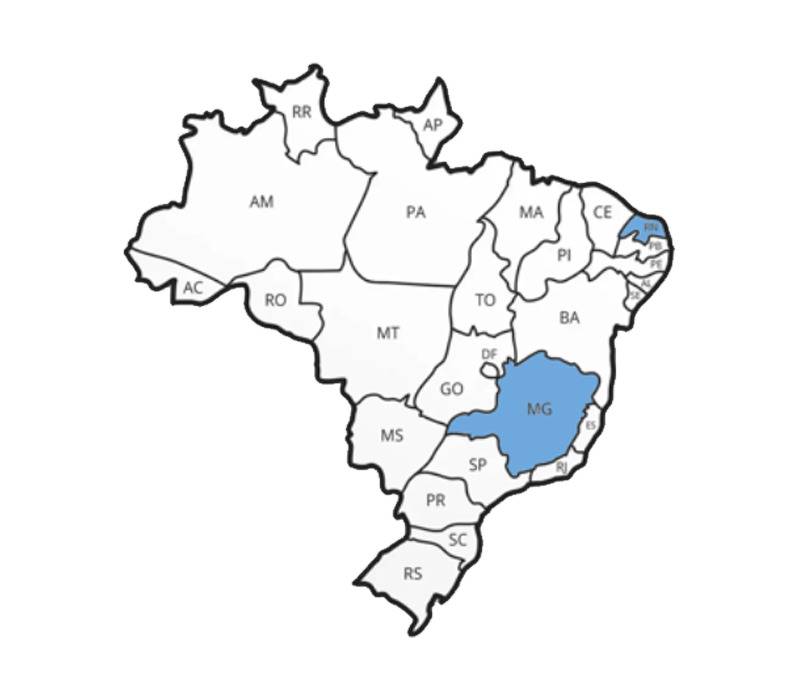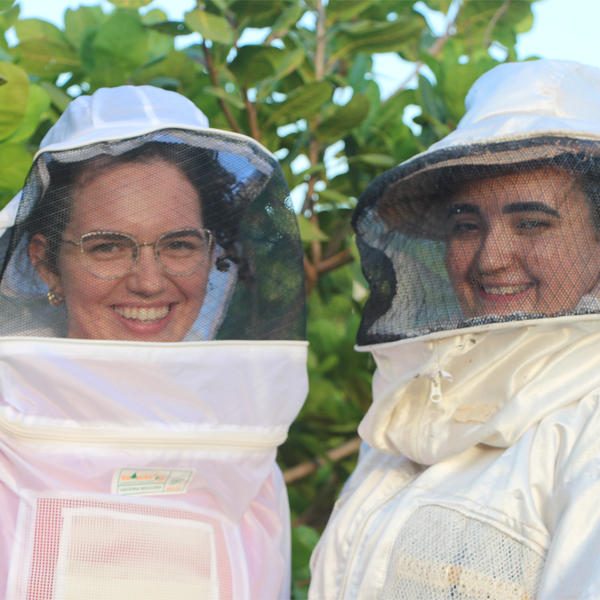Brazil: beekeeping for independence

Many challenges facing young people
In rural Brazil, young people aged 18 to 29, among other challenges must overcome numerous obstacles preventing them from earning an income. Their access to basic infrastructure (credit, land, logistics, technology), to an education, and to technical knowledge appropriate to the rural context, as well as to the networks necessary, is limited. They also come up against a lack of visibility as far as the directors of agricultural cooperatives are concerned.
Objective: 40 independent young beekeepers
A relatively small investment in time and money, together with rapid and profitable results are what make beekeeping a particularly promising and accessible rural business for young people. The project aims to support two groups of young people from the Coopemapi and Coopapi cooperatives, respectively in south-eastern and eastern Brazil. Between now and 2025, 40 young people aged between 18 and 29 will be trained in best practices for beekeeping and low cost technologies. The training project will be based on a three-fold foundation of sustainability: beekeeping as an alternative source of income (profit), low cost technologies for environmental resilience (planet), and finally, helping young people to become independent while strengthening the network of young beekeepers (people).

The project will be built around three action plans:
Technical apprenticeship process for young rural beekeepers: a training course together with technical support will be provided for two rural groups of young people, with the aim of promoting their independence and teaching them the best beekeeping techniques.
Develop businesses in the beekeeping value chain: to ensure the long term financial sustainability of the cooperatives, the young people will be encouraged to explore new revenue opportunities and to innovate. The aim? To develop new economic models involving pollen and propolis-based sub-products and contributions from queen bees. The young people will have an active role to play within these new economic models.
Strengthening the beekeeping network and climate-change awareness: a dialogue will be established between beekeeping cooperatives to create a network and promote climate awareness. The young participants will also be encouraged to develop their leadership on the topic. They will be able to share information and good practices with their families, communities, cooperatives and society.

Impact on young people and society
This training project will have a number of beneficial effects for the long term:
More young people will participate actively in the cooperatives’ decision-making processes.
The young people will have more financial independence.
A sustainable pattern of economic inclusion will be established through local channels.
The cooperative members, including women and young people, will develop an awareness of their active role in fighting climate change and protecting the environment.
International chain project as a starting point
This training programme is an additional element to an international chain project that Colruyt Group has set up in collaboration with the Coopemapi cooperative. The aim? To improve the social and financial situation of local beekeepers’ families. The cooperative will produce natural, organic honey.
It will be sold under the Boni Bio brand at Colruyt Lowest Prices and
Bio-Planet stores. In return, Colruyt Group will guarantee beekeepers a fair, transparent and stable price that is aligned with honey production costs.

